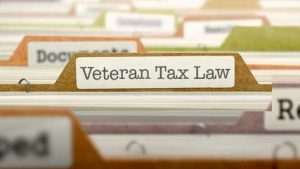New Legislation: Make The Veteran’s Tax Exemptions Available for Co-Ops and Other Communal Housing

NJ Veteran Property Tax Exemption Explained
The New Jersey Veteran Property Tax Exemption statute provides that if you are a veteran, you are entitled to a reduction of all or a portion of your property taxes. If you are determined to be a 100% disabled veteran, then you are entitled to a property tax exemption in the entire amount of your property taxes. The Veteran’s Property Tax Exemption applies to any property in which the veteran, or disabled veteran, has a property interest in. The exemption specifically runs with the property interest, and once the property interest is extinguished, then the property tax exemption is also extinguished.
The potential new law would apply the NJ Veteran Property Tax Exemption to a property interest that is not currently covered under the law. For example, the new law states property interests like co-operatives, or “co-ops,” would be subject to the exemption. The International Co-Operative Alliance defines a co-op as “an autonomous association of persons united voluntarily to meet their common economic, social, and cultural needs and aspirations through a jointly-owned and democratically controlled enterprise.” A co-op in essence is a corporation where shareholders own the property in question. The purpose for this collective effort is to keep the costs for building and maintaining the property down for all people involved without each person needing to personally carry the costs for their own unit. Rather, the cooperative works as a whole unit. Those involved in the co-op are then given “shares” of the corporation, generally in the amount of property which they occupy. They are then given voting rights in the corporation to make decisions for the co-op on things like fees and communal property upkeep. The voting rights given are generally similar, or even the same, for all members of the co-op regardless of how many shares they have.
Another type of property interest the bill discusses are mutual housing corporations. Similar to co-ops, mutual housing corporations feature instances where individuals form a corporation to pool resources and create lower costs to build different housing spaces. However, the individual’s share in the corporation and voting rights are limited to the amount of property they own rather than being a full member of the corporation. This assists the shareholder to help reduce their costs by allocating their payments based upon their percentage interest rather than a pre-set monthly payment for the upkeep.
Prior to the new bill, the Veteran’s Property Tax Exemption did not cover co-ops and other communal property interests. Now, the bill heads to Governor Murphy’s desk for signature. Members of the New Jersey Congress felt it was proper to include disabled veterans living in communal housing or co-ops since they maintained an ownership share in the communal housing association, even though they may not actually own the property in question in their own names.
The call for the inclusion of things like co-ops and other communal property interests has been credited to New Jersey’s push to include all disabled veterans to be eligible for the property tax exemption. Prior to the 2020 election, only disabled veterans who had wartime service were entitled to the exemption. Due to a ballot measure, New Jersey voters voted to extend the exemption to all New Jersey residents who are disabled veterans and received an honorable discharge, whether they had wartime service or not.
Overall, there are roughly 17,000 co-op units in New Jersey. It is not known at this time how many of those are owned by disabled veterans or their spouses. Just like with the traditional Veteran’s Property Tax Exemption, the monetary amount of the exempted veteran’s expected tax will be passed on to the township’s other taxpayers. However, it remains to be seen how many units will be affected by the new change.
To read the bill which was passed, please click here.
To read about different articles regarding the passing of the bill, please click here and here.
The author acknowledges the assistance of William Olson, a law clerk at McKirdy, Riskin, Olson & DellaPelle, in preparing this article. Mr. Olson is a member of the class of 2021 at Rutgers Law School.







